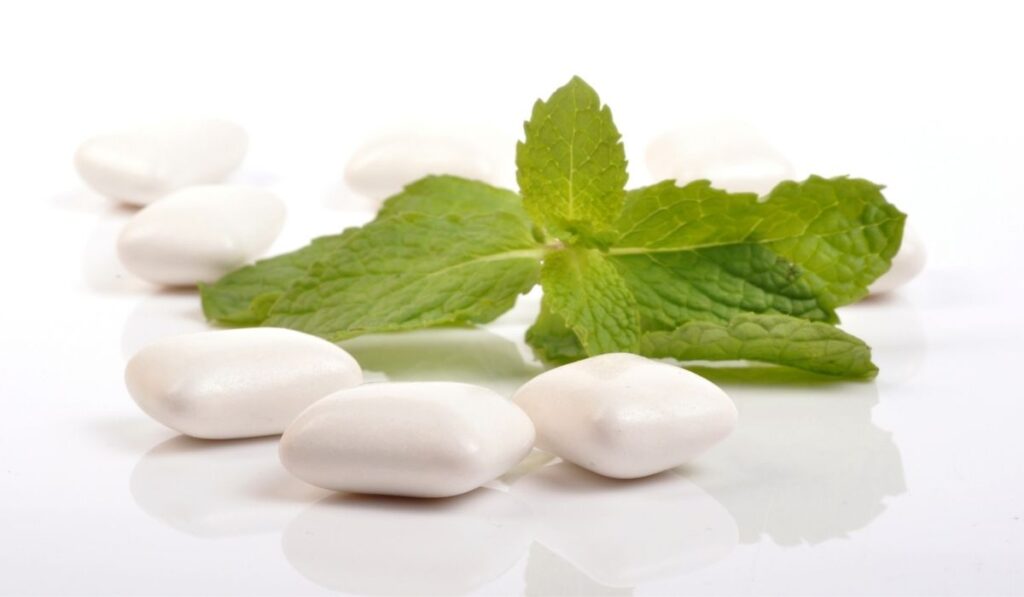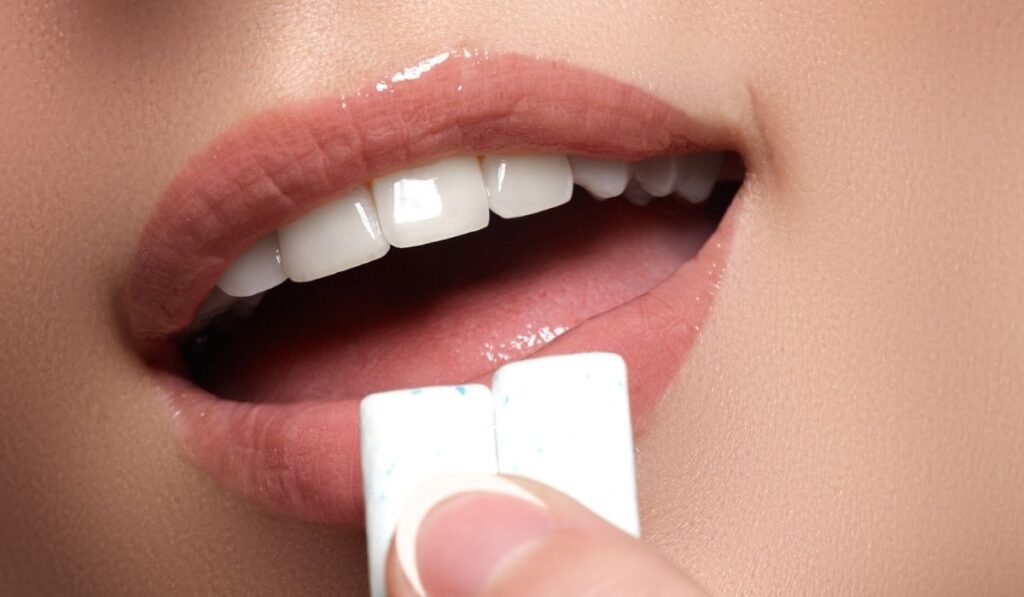Plenty of people will remember parents, or maybe teachers in school, discouraging their children or students from chewing gum. Some say it’s bad for you, but others claim there’s no significant effect to be worried about here. It’s a debate that never seems to get resolved, so let’s see if we can come to some conclusions.
Sugar-free chewing gum is actually good for your teeth. The chewing generates saliva that aids digestions, and it can also promote mind alertness and stress management. However, sugary gum can contribute to the development of tooth decay and cavities, and should therefore be avoided.
So the answer to the age-old question is essentially ‘yes and no’. The sugar present in many types of chewing gum is not your friend. But there are many great sugar-free gum options that are perfectly safe to enjoy, and may even be beneficial to your oral hygiene. Read on for more on the effects of chewing gum and our recommendations for the tastiest sugar-free options.
Is Chewing Gum Harmful to Your Teeth?

Most likely, you’re shaking your head and exclaiming, “No!” However, you’ll be surprised to learn that the answer isn’t so simple. Sugar-laced chewing gum is indeed bad for your teeth. Sugar is known to induce tooth decay and cavities in general, since bacteria use sugar to damage the enamel on your teeth.
Most regular chewing gums contain sugar, artificial flavorings, and preservatives. These three ingredients are known to aid in tooth decay.
That said, chewing gum is not harmful to your teeth if it has no sugar. There are certain chewing gums explicitly made without sugar. You will also find chewing gums that use natural sugars or sugar alcohol. These are the ones that dentists recommend.
Is Chewing Sugar-Free Gum Good for Your Teeth?
Chewing sugar-free gum is very good for your teeth. Sugar-free gum will help you digest and inhibit plaque development in teeth. Plaque is a film of bacteria that is usually sticky and found on your teeth.
When you chew food, it is broken down in your mouth, producing an acid. This acid is neutralized by sugar-free gum, promoting oral hygiene and preventing tooth decay.
If you dislike gum that has no sugar, then try a gum that has a sweetener called xylitol (sugar alcohol). Sugar alcohol is lower in calories, but the taste is just as sweet as regular sugar.
Nonetheless, excessive chewing can cause headaches and jaw pains in some people. It is also good to know that most sugar alcohols contain laxatives. Laxatives can cause problems with digestion.
Remember, nothing can replace good oral hygiene practices such as flossing and daily brushing. Chewing sugar-free gum cannot replace these activities.
What Is the Best Gum for Your Teeth?
Most dentists have agreed that chewing gum can be beneficial for your teeth. Chewing helps the removal of bacteria from your mouth. But not all gums are good for your teeth.
Here are some of the best chewing gums that have been recommended by various dentists and dental boards or associations:
- Orbit
If you only know Orbit for its sweet and sugary chewing gum, you will be happy to learn that it also has popular sugar-free gums, like the Orbit Sweet Mint Sugar-Free Gum (on Amazon). Orbit’s gum has less than five calories apiece.
You can also try Orbit White Peppermint Sugar-Free Gum (on Amazon), which is a relatively new option. It comes in a pack of four with forty pieces in each bottle. The Orbit gum has received the seal of acceptance from the American Dental Association. - Peppersmith
Peppersmith gum comes highly recommended by dentists because it’s made from 100% xylitol, meaning it’s free from artificial sweeteners and sugar.
Amazon has several great options from Peppersmith, including Peppersmith English Peppermint (on Amazon), Peppersmith Sicilian Lemon Mints (on Amazon), and Peppersmith Extra Strong Dental Mints (on Amazon).
Xylitol kills existing bacteria, inhibits growth, makes plaque removal more effortless, and controls acid attacks. - Glee Gum
Glee Gum is another sugar-free chewing gum that comes highly recommended and is free of artificial sweeteners, preservatives, tastes, or colors.
Glee Gum comes in many great flavors, such as lemon-lime, tangerine, and cinnamon. We recommend trying this one: Glee Gum All Natural Peppermint Gum (on Amazon).
Do Dentists Recommend Chewing Gum?

When you ask different dentists whether they recommend chewing gum, you may get conflicting answers. Dentists tend to have a love-hate relationship with chewing gum.
Most will insist that traditional oral hygiene practices are the way to go. But at the same time, they will admit to you that combining oral hygiene and chewing sugar-free gum might have a positive effect.
Here are a few reasons why dentists recommend chewing sugar-free gum:
- It aids in digestion: When chewing gum, you produce saliva and encourage more swallowing, aiding in food digestion.
- It helps with stress management: When you’re chewing, you tend to release nervous energy. This nervous energy is mainly associated with stress.
- It can help suppress overeating: The act of chewing transmits a signal to your body that you are eating. It helps your body from craving food.
- It improves mind alertness: This simple act of chewing increases blood flow to the brain. When blood flows to the brain properly, your mind becomes more alert.
- It boosts your memory: When your mind is alert, you will find that your memory becomes more sharp. You can focus well, and your mind has an easier time remembering things.
Summary
So there you go! Chewing gum is safe, as long as it’s sugar free. Still, chewing gum is not an excuse for neglecting your usual oral hygiene practices, such as brushing twice a day and flossing regularly.


